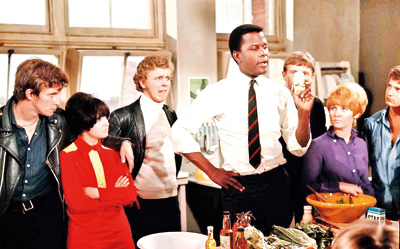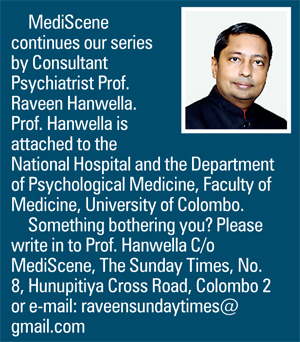To Sir with love – Inspiring teachers
View(s):Carpe diem, quam minimum credula postero – Seize the present; trust tomorrow e’en as little as you may – Horace.
It was December 25, 1939. Britain was at war with Germany. It was a tradition that the monarch addressed the nation on Christmas day. King George VI was broadcasting to the nation from Sandringham Castle. He spoke slowly but steadily, “A new year is at hand. We cannot tell what it will bring. If it brings peace, how thankful we shall all be. If it brings us continued struggle we shall remain undaunted.”
It was a remarkable achievement for a man with a stammer who was terrified of public speaking. A few years earlier he had been deeply embarrassed when he stuttered his way through his closing speech at the British Empire Exhibition at Wembley Stadium. The real hero in the story who enabled the King to deliver his speech so fluently, was an Australian speech and language therapist Lionel Logue. He taught the King muscle relaxation and breath control and also tactfully questioned him on possible psychological roots for his problem.

Sidney Poitier in a still from the famous movie To Sir With Love
Even after therapy was finished the two remained friends. Logue was later honoured by King George VI for his services with the CVO (Commander of the Royal Victorian Order). He would have remained unknown and forgotten if not for the book written by his grandson, “The King’s Speech” which became a major motion picture winning four Oscars including Best Picture and Best Actor for Colin Firth.
Another inspiring movie of a teacher, though fictional, was “Dead Poet’s Society” starring the late Robin Williams. It tells the story of an English teacher, John Keating, who inspires his class with the words, “Carpe Diem. Seize the day, boys. Make your lives extraordinary.” The quote is rated by the American Film Institute as one of the hundred greatest movie quotes of all time.
Keating inspires his class to love poetry and to take action to make changes in their lives. The term ‘carpe diem’ is from the Odes, a poem by Horace, a leading Roman poet during the time of Emperor Augustus. The term carpe diem is a misunderstood phrase. It is not just a Latin proverb which you can quote to justify living for the day and ignoring tomorrow. What the poet meant was not to ignore the future but rather than hoping that things will somehow work out to take action today to ensure a better future.
Before the Romans there were the great Greek teachers, Socrates, Aristotle and Plato. Socrates taught us to question everything we did in life and his method of teaching known as Socratic questioning is now an accepted method in education and science. Socrates believed that the only way to educate was to ask questions and he extended this to questions about life itself. For Socrates the “unexamined life was not worth living” and he preferred to drink the cup of poison and die rather than agree to stop teaching.
 There are six types of Socratic questioning. The first clarifies a concept by asking for further explanations. The second challenges assumptions and the third asks for further information that would support the conclusion. The fourth looks at alternatives and the fifth at implications for the future and finally the sixth questions the question itself. In education Socratic questioning is a powerful tool to explore complex issues and ideas with students. It teaches them to question everything including the meaning of life. Socrates practised what he preached and when brought before an Athenian jury on charges of corrupting the young refused to plead for mercy. A jury of 500 by majority vote, condemned him to death. Socrates then told the jury his thoughts on death, “Death is nothing to fear. It is either non-existence or a simple migration from one place to another. And if it is a migration, then what have we to fear? We shall find ourselves in the company of people like Homer and Hesiod, and what wouldn’t we give to meet them?”
There are six types of Socratic questioning. The first clarifies a concept by asking for further explanations. The second challenges assumptions and the third asks for further information that would support the conclusion. The fourth looks at alternatives and the fifth at implications for the future and finally the sixth questions the question itself. In education Socratic questioning is a powerful tool to explore complex issues and ideas with students. It teaches them to question everything including the meaning of life. Socrates practised what he preached and when brought before an Athenian jury on charges of corrupting the young refused to plead for mercy. A jury of 500 by majority vote, condemned him to death. Socrates then told the jury his thoughts on death, “Death is nothing to fear. It is either non-existence or a simple migration from one place to another. And if it is a migration, then what have we to fear? We shall find ourselves in the company of people like Homer and Hesiod, and what wouldn’t we give to meet them?”
He ended with this memorable line, “And so we part, you to life, me to death. But which of us goes to a better destiny, only god knows.” A few weeks later he drank the cup of hemlock calmly and without fear. Plato had the final word, “This was the end of our friend … a man who was the best and the wisest and the most just of any we have known.”
Returning to modern times, recently I came across the book “To Sir With Love” by E.R. Braithwaite. A bright Cambridge scholar from the Caribbean he was unable to find a suitable job in race-conscious post-war Britain. He finally settled for a job as a teacher in an impoverished school in the London East End. The students were tough and disobedient but he managed to earn their respect and love. Made into a successful movie starring Sidney Poitier the theme song sung by Lulu went on to become a hit.
In a way we are all teachers. As parents, friends, employers and colleagues we teach others how to better themselves. The human race has flourished and advanced because each generation passed on their knowledge and skills to the next. In addition to being a psychiatrist I am a teacher too. I have now taught several generations of medical students and doctors. Recently I asked one of my postgraduate doctors whether she had heard the theme song from “To Sir With Love.” She hadn’t, but having later heard it was not too impressed. She commented that on my retirement they would sing a better song.
There are a few more years for that, and I do hope that when the day arrives I will be worthy of their expectations. In the meantime, I am happy to go with the words of Lulu. It is a tribute to all teachers.
But how do you thank someone
Who has taken you from crayons to perfume?
…A friend who taught me right from wrong,
And weak from strong – that’s a lot to learn
What – what can I give you in return?
If you wanted the moon,
I would try to make a start… But I
Would rather you let me give my heart
To Sir, With Love


